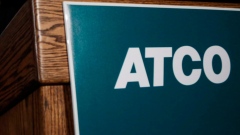Jan 25, 2024
Colleges Ontario warns of harms from student visa cap
, BNN Bloomberg
Removing eligibility to the post-graduation work permit was the right move: Universities Canada
The association representing Ontario colleges is warning of “long-lasting repercussions” from a federal cap on international student visas, and it’s asking for changes to the controversial policy move.
“The federal government’s cap on study permits for international students is essentially a moratorium by stealth that is already causing significant and unnecessary upheaval for students, employers and communities,” Colleges Ontario said in a Thursday statement.
The group that represents 24 Ontario public colleges accused the federal government of rushing its decision without consulting colleges.
“Ontario’s public colleges are calling for the federal government to treat the post-graduate credentials at public colleges the same way it treats the post-graduate credentials at universities and to exempt them from the cap,” the statement said.
The group added that it has already been working with the province to address some of its concerns.
It asked that the federal government delay requirements for study permit letters of attestation until a provincial process can be enacted.
Under the new policy, Immigration, Refugees and Citizenship Canada (IRCC) said each study permit must have a letter of attestation from the province or territory as of Jan. 22, but provinces and territories have until March 31 to create a process for the attestation letters.
The group also requested that the federal immigration minister “engage in a dialogue” about exemptions for students in high-demand programs, along with removing barriers to entry into high-demand programs.
In response to Colleges Ontario’s comments, the IRCC wrote in a statement to BNNBloomberg.ca on Friday that Canada values the social, cultural and economic benefits that international students bring to Canada.
“For those benefits to continue and to ensure international students who arrive in Canada are set up for success, we must tackle issues that have made some students vulnerable and have challenged the integrity of the International Student Program,” the statement said.
“This includes making sure we can manage the number of international students coming to Canada in a sustainable manner, while deterring any bad actors who pose a threat to the system.”
The IRCC said it will continue to work with the provinces and territories on the matter, but the number of students arriving in Canada has become unsustainable.
“An application intake cap for the next two years is necessary to stabilize the growth and protect the integrity of the International Student Program while additional reforms take effect,” the statement said.
What is the international student visa cap?
Their calls come days after Immigration Minister Marc Miller announced a two-year cap on international student admissions to Canada. It included a 35-per-cent reduction in new study visas this year, with some provinces like Ontario seeing a reduction of 50 per cent more.
Miller said this week that he hopes the cap will give governments time to curb a system he said takes advantage of elevated international student tuition, and in some instances, provides poor education.
He said the federal government will work with provinces that did not take action as fast as he would have liked to address the issue.
The government will also bar students from accessing postgraduate work permits beginning on Sept. 1 if the school follows a private-public model, Miller said.
Over the next few weeks, the cap will also see that work permits are only accessible to the spouses of students enrolled in masters programs, doctoral programs and professional programs like medicine and law.
The policy is also being seen as a response to upward pressure on housing prices coming from record-high numbers of immigrants, including international students, entering the country at a time of limited housing supply.
Ontario Colleges called the policy an “attack” on the college system.
“Ontario’s public colleges are very concerned about the attacks on a high-performing, efficient public college system – impacting our reputation with potentially long-lasting negative repercussions,” Colleges Ontario said.
With files from the Canadian Press






